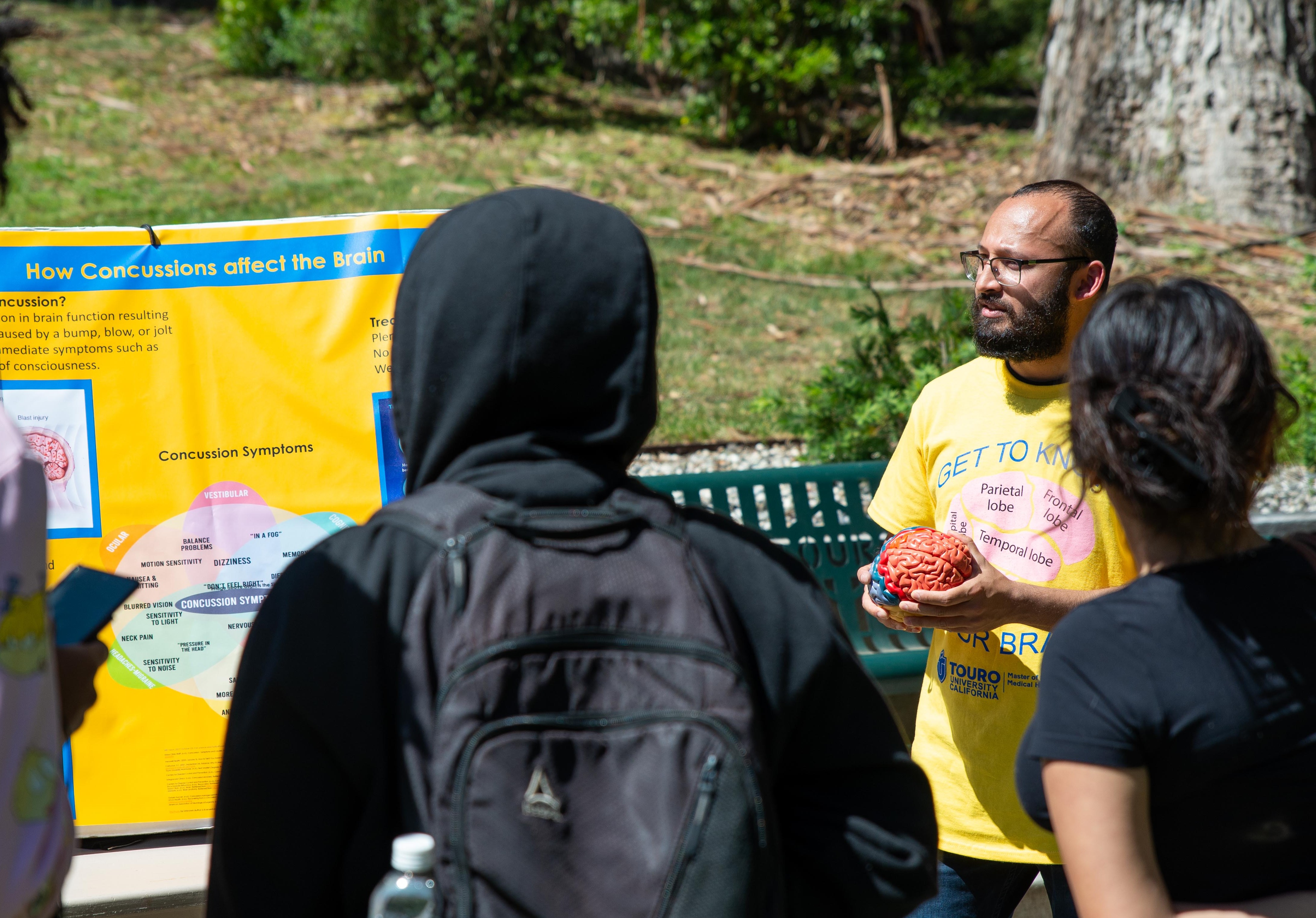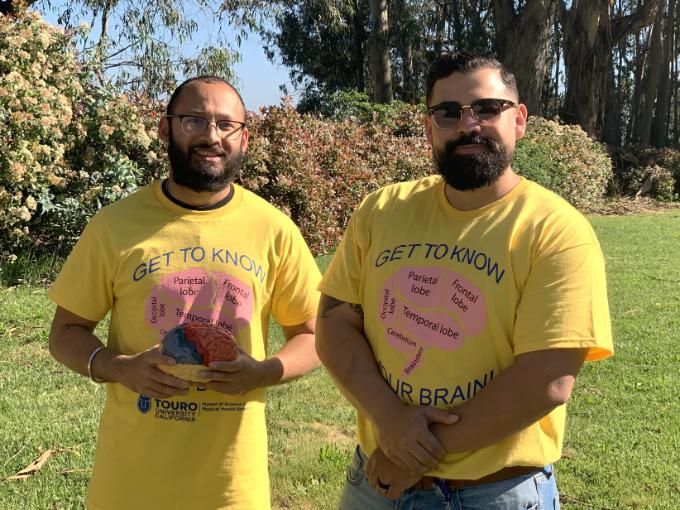Event Inspires Future Health Care Leaders
Brain-Focused Program Delivers an Immersive Cerebral Education Experience to High School Students Through Hands-on Activities

With the desire to teach the community about the inner workings of the brain, Dr. Barbara Puder, a Medical Neuroscience professor at Touro University California (TUC), started “Get to Know Your Brain.”
Recently, a busload of excited high school students from Richmond arrived at Farragut Inn on a cool April morning for a special “Get to Know Your Brain” installation on the TUC campus. The heart of the event is a series of interactive stations, each designed to engage participants in hands-on learning experiences. Exercises include demonstrations focused on memory, eye-hand coordination, phantom sensations, but also the effects of injuries.
“We talk about concussions, drug and alcohol effects on the brain, and other relevant issues,” says Puder.
One station, led by Master of Science in Medical Health Sciences (MSMHS) student Danny Lal, provides participants with special goggles that simulate the visual impairment of a brain injury. As students navigate an obstacle course, they gain a firsthand understanding of the challenges faced by individuals with concussions, particularly student athletes who may be at risk.
“If you're a student athlete, this will give you the experience of what it feels like to have a concussion and recognize it if that happens to you,” says Lal.
Many of the activities are designed by MSMHS students as part of a research project to determine how much the participating high school students learn from each interactive lesson.
“It's a good experience for Touro students to learn how to take all this wonderful medical school information they're learning and translate that in a way that the community can understand,” says Puder. “These high school students are in a health academy program, and most will be first generation college students.”
The students that came from Kennedy High School in Richmond are part of an innovative program that offers them exposure to health care career pathways. Health Careers Lead Teacher Andrea Hernandez says that the “Get to Know Your Brain” program ties in with the mental health education her sophomores get in the pathway. Hernandez says that it also prepares the students in a fun way for the neuroscience anatomy courses they take as seniors.
The career pathway includes medical focused projects in classrooms, science education, an examination of the careers and specialties that are available, and also provides first aid and CPR certification by graduation.
 “We help students prepare resumes, reference lists, and all that they need to prepare for whatever health career they pursue after high school,” says Hernandez, who set the program up at Kennedy High School after completing one herself at a different high school.
“We help students prepare resumes, reference lists, and all that they need to prepare for whatever health career they pursue after high school,” says Hernandez, who set the program up at Kennedy High School after completing one herself at a different high school.
Creating opportunities for the students is the main goal. According to the school’s website, of the 850 students at John F. Kennedy High School, 74.5% come from socioeconomically disadvantaged areas, and 45.9% are not native English speakers.
This is important to MSMHS students like Kenny Montealegre, who identifies as first-generation.
“I'm the first one in my family to go to college and will be the first to receive a master’s degree,” says Montealegre. He wants other students who may be growing up in socioeconomically challenged areas so that they can get a career in health or science.
“This event is a great way to reach those students and remind them that there are people like them who are doing something technical,” says Montealegre.
